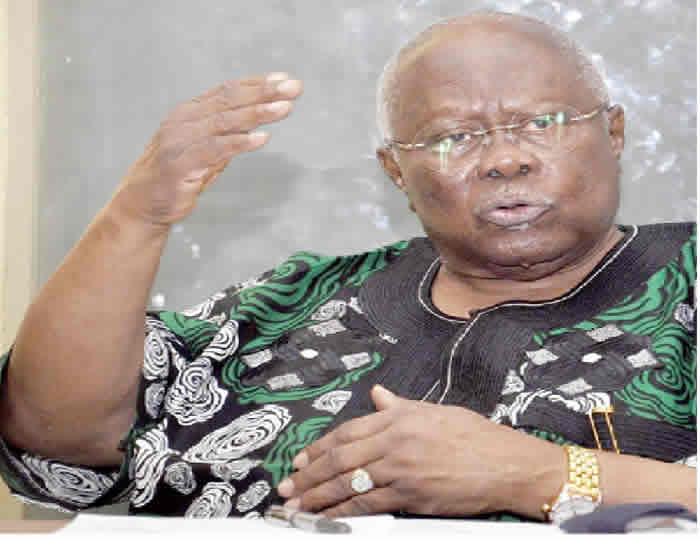Silicon spotlight: Are tech CEOs the new targets of political power?
BY WALE AMEEN
Binance executive’s face off with the Nigerian government, Telegram CEO’s arrest in France, Meta’s Mark Zuckerberg’s past grilling by US congress. The list goes on and on. The internationally televised drilling of Facebook’s (now META) CEO, Mark Zuckerberg before Congress on Tuesday, April 10, 2018, marked the beginning of what has appeared to be a war against tech CEOs, critics say. Many believe that today, tech CEOs are walking around with a target on their heads as world leaders continue to use them as easy targets for government failures in society.
On Saturday, August 24, Pavel Durov, the Russian-born billionaire founder and owner of the Telegram messaging app, was arrested at Le Bourget airport outside Paris shortly after landing on a private jet. The news sent shockwaves across the globe—especially for tech CEOs.
Many tech enthusiasts condemned the arrest and labelled it an attack on tech CEOs, with open criticism from the owner of X, Elon Musk, calling it an attack on free speech in Europe. “It’s 2030 in Europe, and you’re being executed for liking a meme,” Musk shared via his verified social media account.
As the news hit the airways, Moscow released a warning early on Sunday morning, informing France that they were aware of the arrest and that the European country should ensure that Durov was accorded his rights.
What many found even more disturbing was the fact that France did not issue any official confirmation after the arrest, which was surprising considering the status of the individual in question.
Durov would later be charged a total of six counts charges, according to his Aug. 28 arrest warrant, two of which accused the Russian-born tech tycoon of offering encrypted technology services “without certified declaration” and of importing an encrypted messaging app, also “without prior declaration.”
On Durov’s arrest and charge, Andy Yen, CEO of Proton, a privacy-friendly tech provider, said on X: “This is economic suicide and is rapidly and permanently changing the perception of founders and investors.”
The ambush and grilling of tech CEOs has been long coming, and this makes many wonder if the generation of young and vibrant founders of tech platforms is now an endangered species given the undue and sometimes unnecessary spotlight they are continually placed under.
Meta’s Mark Zuckerberg in the spotlight
“We are listening, America is listening. And, quite possibly, the world is listening too.” These were the exact words of American Senator Bill Nelson, ranking member of the commerce committee, to Mark Zuckerberg on April 10, 2018.
Then 34-year-old CEO of Facebook (now META) appeared before dozens of senators—and a nationwide American live television audience linked to a global audience—to address “tough questions” regarding Facebook’s handling of user data and its role in attempts, of what the lawmakers say, was an attempt to undermine democracy.
Over the course of two days, nearly 100 lawmakers from the house and senate questioned Zuckerberg about Facebook’s management of user data.
The visibly uncomfortable founder was confronted with almost 600 inquiries, covering topics such as the potential need for stricter regulation, allegations of deliberately censoring conservative content, and the extent of Russian interference in America’s democratic process via the social media platform.
In his responses, Zuckerberg, probably on advice from his lawyers, did not appear to put up any form of defence as the senators and other members of Congress drilled him. “We didn’t take a broad enough view of our responsibility, and that was a big mistake. It was my mistake, and I’m sorry,” the co-founder and CEO of Facebook said in his opening remarks. “I started Facebook, I run it, and I’m responsible for what happens here.”
As the interrogation went on, critics—many of whom were causing a social media meltdown on Facebook and Twitter (now X)—did not hold back in expressing their displeasure in what they described as a media assassination of the Facebook CEO. Some called it an open execution targeted at heaping the failures of a failed American and global system on the Facebook founder.
The critics opined that if the allegations that the Cambridge Analytica scandal, which linked Facebook to the unauthorised sharing of users’ data with a data analytics firm that worked with the Trump campaign, were true, it exposed a flaw in society and the electoral system, not just in tech. Why wasn’t Aleksandr Kogan, the third-party researcher who gathered user data from Facebook and sold it to Cambridge Analytica, made to face the same media execution as Zuckerberg, many critics enquired?
Fast forward to six years later, and it appears that the torchlight on tech CEOs has not dimmed in any way, leaving many to wonder if tech CEOs are becoming an endangered species.
Again, Congress put tech CEOs in the spotlight—for the wrong reasons
Earlier this year, in January 2024, Zuckerberg and other top tech CEOs—Linda Yaccarino of X, Shou Chew of TikTok, Evan Spiegel of Snapchat, and Jason Citron of Discord—appeared before the senate judiciary committee on a hearing called “Big Tech and the Online Child Sexual Exploitation Crisis.”
According to the committee, the hearing was a fundamental move to drum up international support for the federal legislation in the United States of America to prevent children from accessing online space.
As the hearing kicked off, Republican Senator Lindsey Graham of South Carolina, the Republicans’ ranking member on the panel, directed what many critics had termed a direct attack on the tech CEOs when she said, “Mr Zuckerberg, you and the companies before us—you have blood on your hands. You have a product that’s killing people.”
The group of what we know as the most powerful tech CEOs in the world today faced intense questioning from the United States Senate Committee about the mental health and other risks their internationally popular platforms posed for people – especially young people.
The tech CEOs admitted to the allegations that their platforms have promoted some vices and were open about what they were doing to tackle these challenges. In what many critics and social commentators have termed a remarkable and brave moment, the CEO of META, Mark Zuckerberg, requested to directly address representatives of families who have been directly affected by online abuse; he was granted his request. Mr. Zuckerberg used the opportunity to directly apologize
to the families for all they have gone through.
Binance executive’s travails in Nigeria
Another notable tech personality who has had a rough patch with authorities is an executive of cryptocurrency trading platform Binance. Tigran Gambaryan was arrested in February, along with his colleague Nadeem Anjarwalla, a British-Kenyan dual national. For more than 5 months now, both have been held by the Nigerian government in connection with the Nigerian government’s accusation of Binance being responsible for the country’s woes and on charges of tax evasion and money laundering.
To whom much is given, much is expected, but…
While it is most certainly true that to whom much is given, much is certainly expected, it however behoves society, especially governments around the world, to go easy on these individuals, a number of them setting the pace in previously uncharted terrains.
While society holds these individuals who sit on the top of virtual platforms, some with populations twice the size of some countries, it must also take into consideration the efforts these youngsters put in to shape our daily experience.
Wale Ameen, an IT enthusiast, entrepreneur and author, can be contacted via [email protected]
Views expressed by contributors are strictly personal and not of TheCable.







